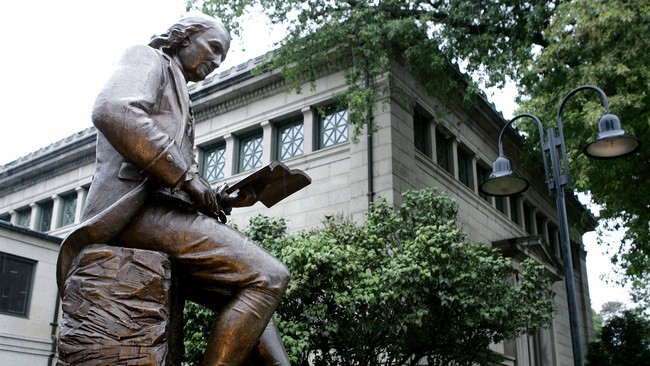
Writing politics is not the same as political writing. The latter entails an engagement with the subject, while the former suggests a reaction to the subject. The problem is that the two will, for some practitioners, eventually begin to coalesce.
Not long ago, I was struck by an article by PJ Media columnist Athena Thorne titled “Telling the Truth Takes a Toll,” in which she writes of her metier as a reporter. “My eyes have been opened wider than I ever wanted to know they could be. And truth be told, it takes a toll. We reporters and editors earn our living basically by doom scrolling.” There comes a day when one simply wants out. Still, Thorne continues, “No matter how much we want to turn away from the frightening, the violent, the bigoted, and the corrupt, we can’t. Because we’d rather know the truth and face reality than live in a fantasy world of ignorance.” It is a trenchant observation.
In my own case, there was a time when I had developed a strong set of hermeneutic callouses and could read the news, analyze with equanimity the reprehensibly stupid, misguided and decadent productions of our decranialized pundits and authors, and even resist the stench of evil emanating from the words and pages of far too many politicians and ideologues.
That time is no more. I cannot re-read “Mein Kampf” from cover to cover. I cannot even get through an article that is infinitely silly or neutron-star dense. I can only skim and scan the fetid effluvia of left-wing mutants, feminist viragos, bottom-feeder journalists, alphabet freaks, gender benders, Muslim apologists, pontificating zeppelins, and Democrat bedlamites. I no longer have the patience to peruse or to spend intellectual time with the exhalations of the brain-dead, lunatic, shallow, craven, and sometimes outright evil caricatures of a once-plausible humanity. Stephen Kruiser calls these folk “Constitution-loathing lizard beings,” and wonders if this is even hyperbole. One doesn’t want to have any commerce with these despicable people, lest one be rendered either jaundiced or hopeless.
As a result, I have become impenitently cynical. I have no compunction in saying that these are nothing people. These are non-people. These are the ex-people that Jack Posobiec and Joshua Lisec call Unhumans. These are the criminals that Seamus Bruner dubs the Controligarchs. These are walking shells without souls. Some are mad. Some are imbeciles. Some are medullary liars. Some are truly evil. They will never greet another human being of talent, imagination, fortitude, and decency of character as a person to be respected.
They will accept the sacrifices that others have made to protect their freedom and defend their very existence, but they will never walk in a garden of stone. These are the professional parasites who feed off the merit, dedication, and civility of others. These are the jackals of the species. These are the demons prophesied by John of Patmos in the Book of Revelation. They are creatures without scruples, creatures who despise beauty, are impervious to truth, oblivious to moral reciprocity, strangers to introspection, and devoid of humor. They proliferate among the mass of humankind. Shakespeare’s words from “The Tempest” resonate: “Hell is empty and all the devils are here.”
The question for someone like me is what to do next, how to persist, how to deal with those whom M. Scott Peck called People of the Lie, how to treat effectively with a compromised iatocracy, a judiciary that labors to pervert and annul prosecutorial ethics, an Academy that has lost its way, and a political world in which, as philosopher Giorgio Agamben writes in “The Mystery of Evil,” power and institutions are delegitimated “because the powers have lost all awareness of their legitimacy.”
Writing about such derelictions is, after all, my daily work, but it takes a certain state of mind that allows one to continue doing research for articles and books while unintermittedly facing the putrid quality of our time, and to do the work without succumbing to depression. Athena Thorne has more courage than I do. My wife Janice Fiamengo puts me to shame with the assiduous attention she pays to the efforts of the professionally decrepit in order to produce her rebuttals in video, Substack, and book.
Robert Spencer comments on the death of “conservative media warrior Michael Ledeen, the nemesis of the insidious left,” a man who was “unflaggingly affable, cheerful, and optimistic, never angry or bitter, even as he looked squarely into the face of those destructive forces and was doing all he could to stop their seemingly inexorable advance.” The question is how to “emulate his calm determination in the face of evil”—or how to do so even if one cannot remain calm.
Perhaps it was ever thus. For certain temperaments, writing politics is an occupational hazard. The question, then, comes down to how to do political writing while continuing to write politics. In other words, how to survive one’s trade. I haven’t as yet arrived at an answer, though the issue is growing increasingly pressing. The temptation is to return to writing poems that no one will read or reviving my chess game with no one to play against or writing songs that no one will sing, which does not seem like an adequate solution. Candide’s garden does not seem feasible in times like these. I now recall the famous conclusion to Samuel Beckett’s “The Unnamable“: You must go on. I can’t go on. I’ll go on.
Editor’s Note: The Democrat Party has never been less popular as voters reject its globalist agenda.
Help us continue exposing Democrats’ plans to lead America down a dangerous path. Join PJ Media VIP and use promo code FIGHT to get 60% off your membership.
















